
Bridging the gap: How mobile health clinics provide a lifeline for flood-hit communities in Pakistan
The devastating floods that hit Pakistan last summer swept away homes, destroyed livelihoods and left remote communities cut off from essential services. One of the less visible, but no less important, impacts of the floods was on people’s health and access to healthcare.
The devastating floods that hit Pakistan last summer swept away homes, destroyed livelihoods and left remote communities cut off from essential services. One of the less visible, but no less important, impacts of the floods was on people’s health and access to healthcare.
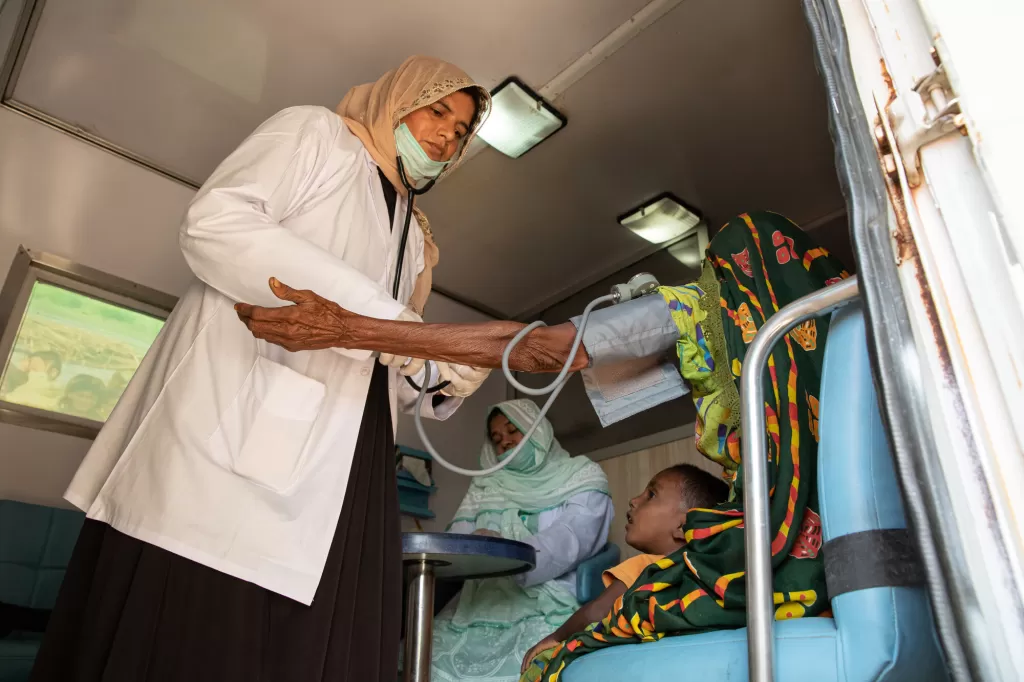
Nurse Noor checks the blood pressure of a patient at a mobile health clinic in Pakistan, funded by DEC charity CAFOD. Photo: Insiya Syed/DEC
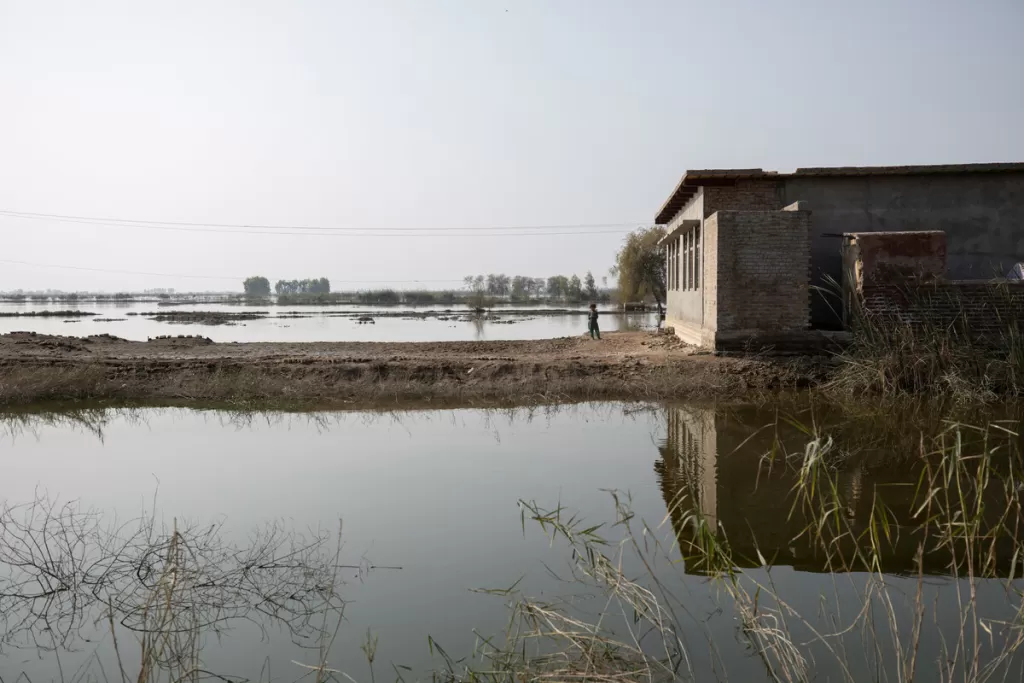
The extent of stagnant flood water in Sindh, Pakistan, in November 2022.
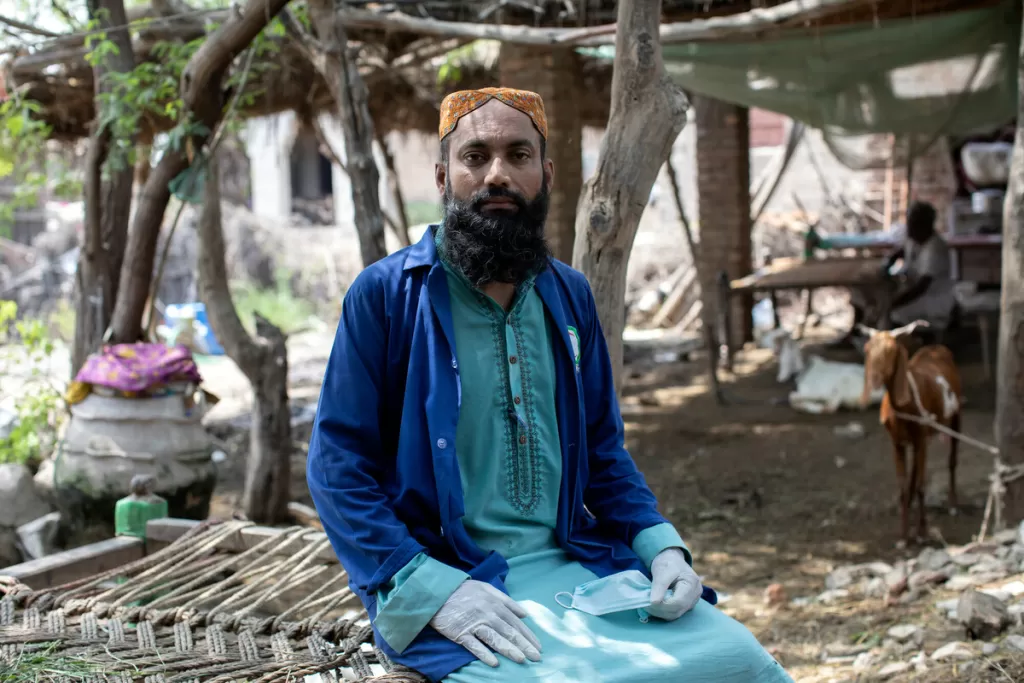
Senior Medical Technician, Alam Sher Khan, outside a medical camp organised by DEC charity Concern Worldwide and its local partners, in Sindh, Pakistan. Photo: Khaula Jamil/DEC
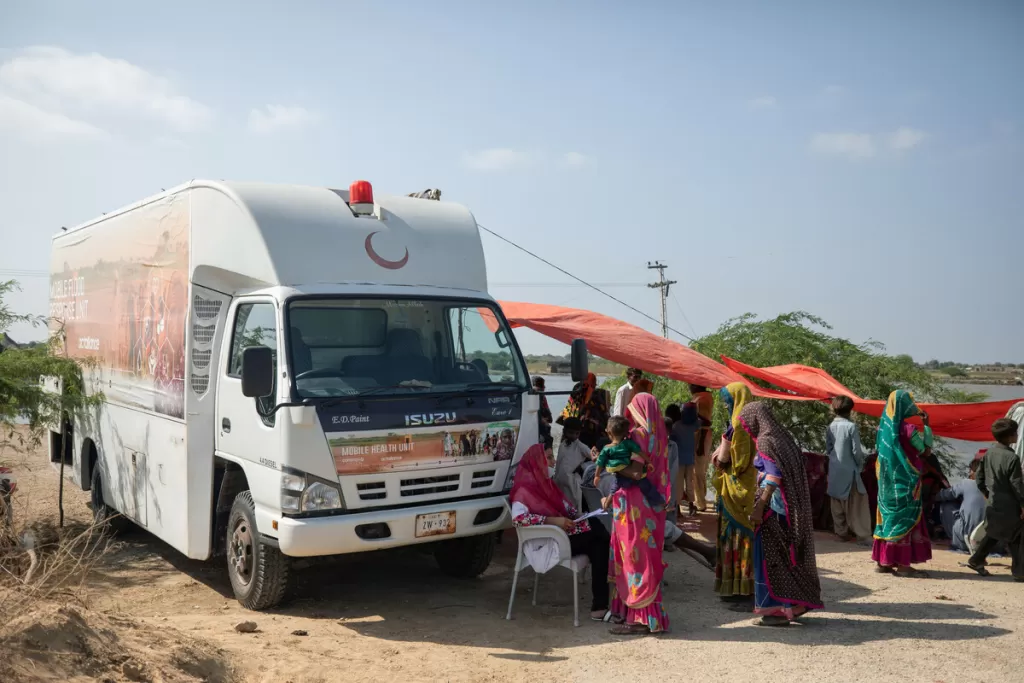
Women and children queue outside a mobile health clinic truck funded by DEC charity CAFOD in Sindh, Pakistan. Photo: Khaula Jamil/DEC
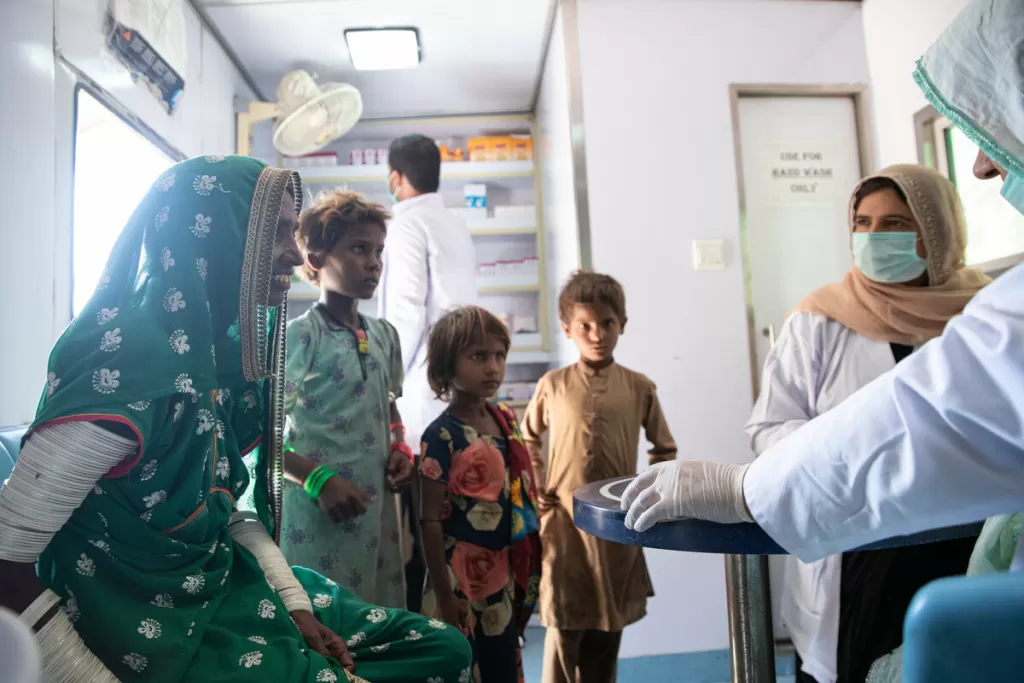
Dr Anilla writes a prescription for a patient inside a mobile health unit in Pakistan. Photo: Insiya Syed/DEC